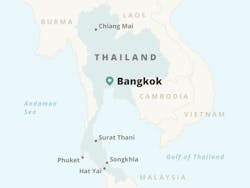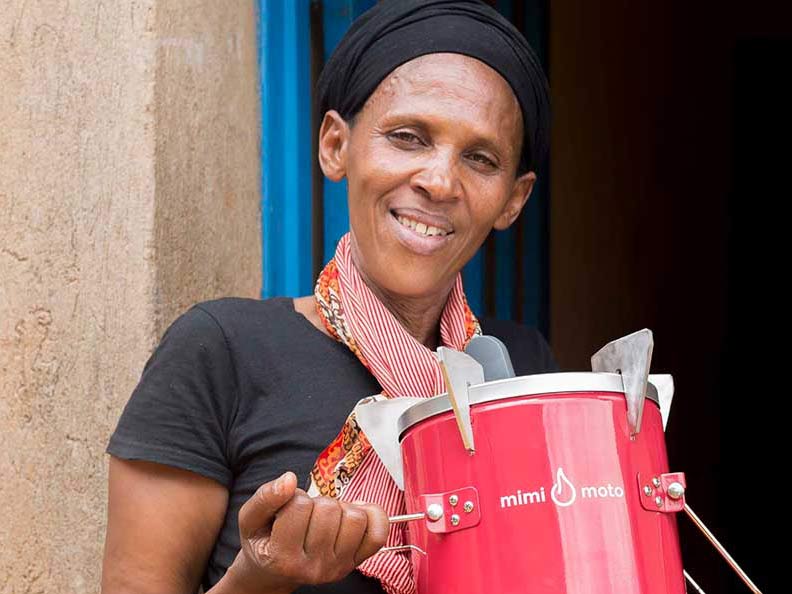About Small Enterprise Development (SED)

Small Enterprise Development (SED) is an independent microfinance institution based in the town of Surin in north-eastern Thailand. It began operations in 1988 when the aid and development organisation Catholic Relief Services initiated a Village Banking Project. It became a registered microfinance institution in 1996. SED offers individual and group loans to low-income sectors of the population, the majority of whom are women, to develop their businesses. SED’s clients are engaged in a wide range of income-generating activities including agriculture and animal husbandry, handicrafts such as silk weaving, preparation and sale of food, and grocery and retail shops. Its geographical focus is on the three neighbouring provinces of Surin, Buriram and Srisaket which all border Cambodia to the south.
What is Small Enterprise Development's mission?
SED's mission is to 'alleviate the poverty of low-income families in Thailand and to empower women through a sustainable poverty lending programme'.
What types of financial services does Small Enterprise Development provide?
SED specialises in providing loans to low-income sectors of the population, particularly women. It provides village bank loans to groups of at least five women living in rural areas. Each member receives the equivalent of between US$300-450 and the loan term is six months. It also provides individual loans of up to approximately US$1,800 with a maximum repayment term of up to three years. SED has also created an informal debt redemption loan for women from village banks so that they can redeem collateral from usurious moneylenders.
How much interest does Small Enterprise Development charge?
Microfinance institutions (MFIs) charge higher rates of interest for several reasons. Firstly, the administrative costs of making many small loans are much higher than making fewer larger loans; secondly, they take more time assessing the feasibility of applications and thereby reducing risk because borrowers cannot offer traditional forms of collateral nor do they have salaried incomes; thirdly, MFIs often operate in geographically remote areas with low population densities and this means that they incur greater operational costs; and fourthly they often accompany loans with a range of training and technical advice.
The most representative loan product of SED funded by Lendwithcare attracts an Annual Percentage Rate (APR)* of 20.29%.
*The Annual Percentage Rate (APR) is a standard way of expressing the cost of a loan that allows for comparison between loans. It includes annual interest, insurance, and fees that the borrower must pay, and is expressed as a percentage of the amount borrowed.
Does Small Enterprise Development provide any training?
SED does provide basic training in establishing and managing village banks and bookkeeping. From time to time it organises 'exposure trips' so individuals can learn how they might improve their businesses.
Where can I find out more information about Small Enterprise Development?
Further information about SED is available at the organisation's website here.
Small Enterprise Development: Basic facts and figures (March 2025)
Full name: | Small Enterprise Development Co Ltd. |
Established: | 1988 |
Average loan size: | US$7,824 |
Number of active loans: | 14,340 |
Outstanding loan portfolio: | US$4,216,684 |
Portfolio at Risk (PAR) at 30 days*: | 6.87% |
Proportion of loans given to women: | 85% |
Proportion of loans given in rural areas: | 100% |
*PAR30 is a commonly used metric that provides an insight into the quality of an MFI's loan portfolio, which is generally its major asset and therefore its greatest source of risk. It is computed by dividing the amount of delinquent loans greater than 30 days over the total amount of the loan portfolio.
Thailand: Basic facts and figures (August 2025)
Population: | 71.7 million * |
Currency: | Thai Baht* |
GDP per capita: | US$7,345* (compared with US$52,637 in the UK) |
Inflation (GDP deflator): | 1.4%* |
Life expectancy: | 76 years* |
Percentage of population living on less than $3.00 a day: | 0%*** |
Human Development Index ranking: | Ranked 76 (out of 193 countries)** |
Infant mortality rate (per 1,000 live births): | 6*** (compared with 4 in the UK) |
Percentage of adults with a bank account: | 95%*** |

We're proud to introduce a new way to support low-income families most at risk of climate change through Lendwithcare. Find out more about making a grant today.